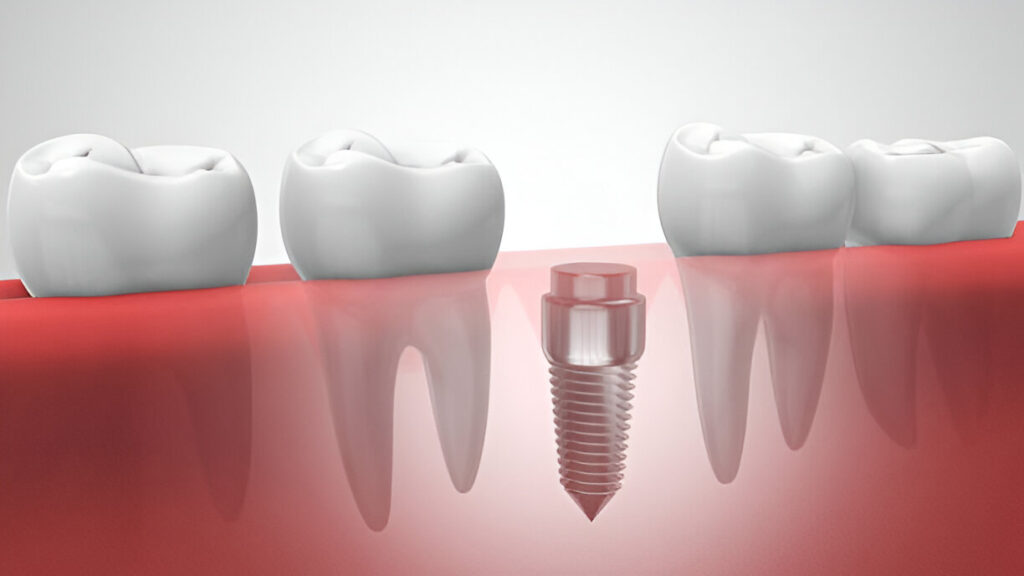Dental implants are a popular choice for replacing missing teeth. Many people opt for implants because they are strong, look natural, and can last for many years. However, dental implants are not the right solution for everyone. In this article, we will explore some reasons why you might want to think twice before deciding to replace your teeth with implants.
1. Dental Implants Can Be Expensive
One of the main reasons people avoid dental implants is the cost. In the UK, dental implants can be quite pricey. On average, they can cost anywhere between £1,500 and £3,000 per tooth. This price includes the implant itself, the crown, and any other treatments that may be needed, such as bone grafts. While dental implants are a long-term solution, the high cost can make them unaffordable for many people. Some patients may not have dental insurance that covers implants, which can add even more financial strain.
If you’re on a budget, other options, like dentures or bridges, may be more affordable. These alternatives might not last as long as implants, but they can still restore your smile without breaking the bank.
How Long Do Teeth Implants Last?
2. The Procedure Involves Surgery
Dental implants are not a simple fix. They require surgery to place the implant into the jawbone. The procedure involves drilling into the bone, which can cause discomfort and risks. While modern technology has made the process much safer, surgery still carries risks. You could experience infections, nerve damage, or other complications during or after the procedure.
If you are afraid of surgery or have certain health conditions, you might want to consider other options. People with health problems, such as heart disease or diabetes, may find that they are not suitable candidates for dental implants. In these cases, your dentist may recommend other tooth replacement methods.
3. Healing Time Can Be Long
Once the implant is placed, it takes time for the bone to heal and fuse with the implant in a process called osseointegration. This can take several months. In some cases, the healing process can be slow or unsuccessful. If the bone doesn’t fuse properly, the implant may fail. For some people, this long wait can be frustrating. Additionally, you may need to avoid certain foods or activities while healing.
If you need a quicker solution for replacing missing teeth, implants might not be the best choice. Dentures or bridges can be fitted much faster and don’t require the long recovery times that implants do.
Does Baking Soda Whiten Teeth?
4. Not Everyone Is a Good Candidate
Dental implants are not suitable for everyone. For the procedure to be successful, you need to have healthy gums and enough bone density in your jaw. If you have gum disease or have lost a significant amount of bone in the area where the implant will go, you may need a bone graft first. This can add more time and cost to the procedure.
Additionally, you need to be in good overall health to ensure that your body can heal properly after surgery. Smoking, for example, can increase the risk of implant failure. People with uncontrolled conditions, such as diabetes or cancer, may not be ideal candidates for dental implants. If you have concerns about your suitability for implants, it is essential to consult with a dentist at a reputable Polyclinic in Dubai to determine the best course of action for your oral health.
How Much Is Teeth Whitening for All Teeth?
5. Dental Implants Require Care and Maintenance
Though dental implants are a long-lasting solution, they still require regular care. You must keep your gums and the area around the implant clean to prevent infections. Regular visits to your dentist are necessary to check the health of the implant and surrounding tissues. If you don’t maintain good oral hygiene, the implant could fail, and you may need to replace it.
The long-term care required for implants is not a problem for everyone, but it can be a drawback for people who struggle to maintain good oral hygiene. If you’re not committed to keeping the area clean, dental implants might not be the best choice for you.
How Long Does Teeth Whitening Last?
6. Implants May Not Always Look Natural
While dental implants are designed to look like natural teeth, they may not always blend in perfectly. Factors like the shape, colour, and position of the implant can affect how natural it looks. If the implant is placed in a highly visible area, it may not match the surrounding teeth as well as you’d like.
In some cases, people may need to have the crown replaced if it doesn’t look natural or fits poorly. This can be an additional expense and may lead to frustration. While implants are a great solution for many, they are not a guaranteed perfect match for everyone.
7. Possible Side Effects and Complications
Like any surgery, dental implants come with possible side effects. Some people may experience pain, swelling, or bruising after the procedure. In rare cases, implants may fail, leading to the need for additional surgeries to remove or replace them.
If the implant doesn’t integrate properly with the jawbone, it may need to be removed, and the area may need further treatment. These complications are not common, but they can still occur and can be costly to resolve.
Can yellow teeth become white again?
8. Dietary Restrictions During Healing
After getting a dental implant, your dentist will likely recommend a soft-food diet for a period of time to help with the healing process. You may need to avoid hard or crunchy foods that could damage the implant or cause discomfort while it is healing. If you are someone who enjoys eating a variety of foods, this can be a major inconvenience.
If you’re not willing to adjust your diet for several months, dental implants may not be the right option. Dentures or bridges, on the other hand, don’t require such strict dietary restrictions.
Conclusion
Dental implants are an excellent solution for many people who have lost teeth. They are strong, look natural, and can last a lifetime with proper care. However, they are not for everyone. The high cost, lengthy healing time, the need for surgery, and the risk of complications make them a less desirable option for some people.
Before deciding to replace your teeth with implants, it is important to carefully consider these factors. Talk to your dentist about your options and ask about alternative treatments that might be better suited to your needs. There are plenty of other ways to restore your smile that may be more affordable and require less time to heal.
Contact YAH Polyclinic for Expert Dental Advice
If you are considering dental implants or any other teeth replacement options, don’t hesitate to contact YAH Polyclinic. Our team of experienced dental professionals can guide you through the best choices for your unique needs. We offer affordable, personalised care with a focus on your health and comfort. Book your consultation today and take the first step toward a beautiful, confident smile.
Frequently Asked Questions (FAQs)
Are dental implants safe?
Yes, dental implants are generally safe. However, like any surgery, there are risks involved. It’s essential to follow your dentist’s instructions and attend regular check-ups to ensure proper healing and avoid complications.
How long do dental implants last?
Dental implants can last for 20-30 years or even a lifetime with proper care. Regular cleaning and check-ups are vital to maintain their longevity.
3. Are there alternatives to dental implants?
Yes, alternatives include dentures, dental bridges, and partial dentures. Your dentist can help determine the best option based on your needs and budget.
Can I get dental implants if I smoke?
Smoking can increase the risk of implant failure. Smokers are advised to quit or at least stop smoking temporarily during the healing process to improve success rates.
How much do dental implants cost in the UK?
The cost of dental implants in the UK typically ranges from £1,500 to £3,000 per tooth. Additional costs for bone grafting or sinus lifts may apply depending on individual needs.





